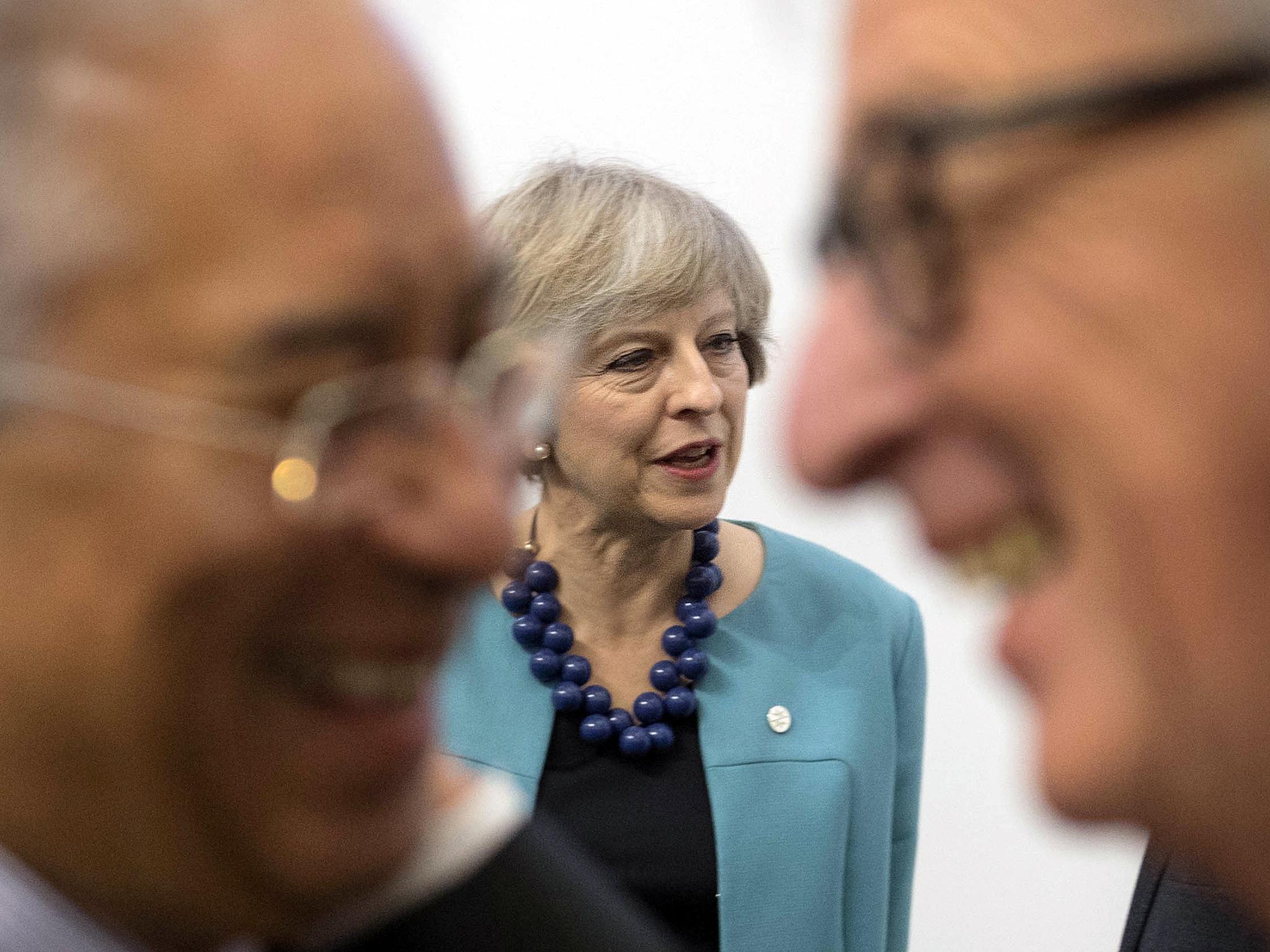EU Malta summit: European leaders rebuff Theresa May's offer to act as 'bridge to Donald Trump'
The Prime Minister faces an uphill battle to convince EU leaders she can help them work with a US President who horrifies them

Your support helps us to tell the story
From reproductive rights to climate change to Big Tech, The Independent is on the ground when the story is developing. Whether it's investigating the financials of Elon Musk's pro-Trump PAC or producing our latest documentary, 'The A Word', which shines a light on the American women fighting for reproductive rights, we know how important it is to parse out the facts from the messaging.
At such a critical moment in US history, we need reporters on the ground. Your donation allows us to keep sending journalists to speak to both sides of the story.
The Independent is trusted by Americans across the entire political spectrum. And unlike many other quality news outlets, we choose not to lock Americans out of our reporting and analysis with paywalls. We believe quality journalism should be available to everyone, paid for by those who can afford it.
Your support makes all the difference.EU leaders appeared to rebuff Theresa May’s offer to be a “bridge to Donald Trump” within hours of her arriving at an informal summit in Malta.
Both German Chancellor Angela Merkel and François Hollande, the French President, will “debrief” other EU leaders today with their own impressions of the new US President, it was announced.
The move immediately downplayed Ms May’s role in formulating an EU response to the Trump phenomenon – a role she hoped to take on, as the only leader to have met him face-to-face.
The Prime Minister believes her talks with Mr Trump – in particular, extracting his commitment to be “100 per cent behind Nato” – can strengthen her hand in the looming Brexit negotiations.
Meanwhile, Dalia Grybauskaite, the Lithuanian President, told the BBC: “I don’t think there is a necessity for a bridge – we communicate with the Americans on Twitter.”
Mr Hollande summed up EU suspicion of Mr Trump as he arrived at the informal summit in Valletta, saying: “What is at stake is the very destiny of the European Union.
“It is unacceptable that there be, through a certain number of statements by the President of the United States, a pressure on what Europe must be or what it must not be, because that is what he seeks.
“There is also the need to ensure our own defence within the framework of the Atlantic Alliance. We must protect our commercial interests when they are threatened.”
Ms May arrived in the Maltese capital carrying the message from Mr Trump that Europe must increase its defence spending in return for his “100 per cent” commitment to Nato.
But other EU leaders view the American leader with horror because of his hostility to the EU, his protectionism and controversial policies, such as the travel ban from seven mainly Muslim countries.
The European parliament’s main political parties have called for Mr Trump’s likely choice as ambassador to the EU to be blocked from its buildings after he said the EU needed “taming”.
And, earlier this week, Donald Tusk, the President of the European Council, included the US President as a “threat” facing the bloc, along with China, Russia and radical Islam.
Ms May is only attending the first part of the summit in Malta, which has seen the EU debating the ongoing migration crisis affecting the continent.
Later today, they will discuss Brexit, but – in a signpost to the future – without the UK Prime Minister, who will head home early.
However, Downing Street said her Brexit speech last month had been welcomed by Spain’s leader, Mariano Rajoy, who told her it had “clarified many things” and provided greater certainty.
“They agreed that it was important to think about the future relationship as well as the detailed exit arrangement, so that we can give greater certainty for people and businesses who want to live and work in each other's countries,” a spokeswoman said.
The two leaders also agreed an early deal on the rights of EU citizens in the UK and Britons in the rest of Europe was desirable.
Ms May is also holding talks with Ms Merkel, Austria’s Chancellor Christian Kern and her Maltese counterpart Joseph Muscat, on the margins of the one-day summit.
However, the Prime Minister did not speak to reporters as she arrived at the Grandmaster’s Palace in Valletta – and will leave without staging a press conference.
Join our commenting forum
Join thought-provoking conversations, follow other Independent readers and see their replies
Comments